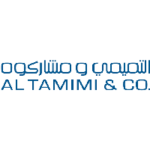-
Is the system of law in your jurisdiction based on civil law, common law or something else?
The Colombian legal system is based on civil law.
-
What are the different types of vehicle / legal forms through which people carry on business in your jurisdiction?
The types of vehicles most used to carry on business in Colombia are the corporation (sociedad anónima), the simplified stock company (sociedad por acciones simplificada) and the branch of a foreign company.
The following table summarizes the main characteristics of these local vehicles, indicating similarities and differences:
Item Corporation Simplified Stock Company Foreign Company Branch Incorporation By means of a public deed granted before a Colombian Public Notary and registered with the Chamber of Commerce. By means of a private document registered with the Chamber of Commerce, unless assets are being contributed at the time of incorporation and the conveyance of such assets requires a public deed (e.g., real estate). By means of a main office board resolution incorporated into a public deed granted before a Colombian Public Notary and registered with the Chamber of Commerce. Number of partners/
shareholdersMinimum five shareholders, none of which may have 95% or more of the outstanding capital stock of the company. Minimum one shareholder; no maximum limitation provided by law. The foreign company is the sole owner (the branch is an extension of the foreign company). Liability of
shareholdersLimited to the amount of the shareholder’s contributions, except in cases of fraud or abuse by the company in detriment of third parties, and in the following cases: (i) Liability for outstanding obligations of a bankrupt affiliate if the actions by the parent company gave rise to the insolvency of said affiliate;
(ii) Willful misconduct or negligence that led to the deterioration of the company’s financial condition; and
(iii) Overvaluation of contributions in kind.
Limited to the amount of the shareholder’s contributions, except in cases of fraud or abuse by the company in detriment of third parties, and in the following cases: (i) Liability for outstanding obligations of a bankrupt affiliate if the actions by the parent company gave rise to the insolvency of said affiliate;
(ii) Willful misconduct or negligence that led to the deterioration of the company’s financial condition; and
(iii) Overvaluation of contributions in kind.
The main office is jointly liable for the branch’s obligations. Capital Contributions At the moment of incorporation, the shareholders must subscribe at least 50% of the authorized capital and pay at least one-third of the subscribed capital. The remaining two thirds must be paid within a year of incorporation. The subscription and payment of capital can be made under the conditions, in the proportion and terms established by the shareholders provided, however, that shareholders have a maximum term of two years since incorporation to pay for the subscribed shares. Allocated capital must be fully paid and its increase requires an amendment to the resolutions setting up the branch and authorization by the foreign company’s competent corporate body, as well as formalization in Colombia. The increase of the supplementary investment does not require such an amendment and may be made in cash from abroad. Transfer of shares/stock Transfer is carried out by endorsing the certificates or issuing a letter of transfer and registering the new shareholder in the company’s stock ledger. The transfer may be subject to a right of first refusal in favour of the company and the shareholders, if expressly set forth in the bylaws. Transfer is carried out by endorsing the certificates or issuing a letter of transfer and registering the new shareholder in the company’s stock ledger. The transfer may be subject to a right of first refusal in favour of the company and the shareholders, if expressly set forth in the bylaws. Does not apply. Corporate purpose Corporate purpose must be narrowly defined. Corporate purpose may be broadly defined. Corporate purpose shall be narrowly defined within the foreign company’s corporate purpose. Term of duration Defined (but may be extended by the shareholders). May be indefinite. Defined (but may be extended by the main office and must be within the term of the foreign company.). Legal Reserves 10% of the annual net gains, up to an amount equivalent to 50% of the subscribed capital. No legal reserve is mandatory, unless otherwise contemplated in the company’s bylaws. 10% of the annual net gains up to an amount equivalent to 50% of the assigned capital. -
Can non-domestic entities carry on business directly in your jurisdiction, i.e., without having to incorporate or register an entity?
Non-domestic entities wishing to undertake a permanent activity in Colombia must channel their investments and conduct business through a local vehicle, such as a commercial company or a foreign company branch.
The permanent activity concept, which is different from the notion of permanent establishment for tax purposes, includes but is not limited to the following activities:
- Opening commercial establishments and/or business offices in Colombia.
- Participating as a contractor in the performance of works or in the provision of services in Colombia.
- Participating in any form or activities aimed at the management, use or investment of funds from private savings.
- Carrying out activities related to extractive industries.
- Obtaining a concession from the Colombian government or in any way participating in the exploitation thereof.
- Conducting its shareholders’ or board of directors’ meetings, or its management or administration, in the national territory.
Colombian laws do not provide specific criteria or a term of duration in order to determine whether an activity is permanent or not. Therefore, permanence will depend on the particular circumstances, such as the nature or scope of the activity, the infrastructure required in the country for its performance, its regularity and the recruitment of personnel in Colombia, among others.
-
Are there are any capital requirements to consider when establishing different entity types?
Generally, Colombian laws do not require a minimum capital contribution to incorporate commercial companies or register foreign company branches. The capital contribution is determined by the shareholders or by regulation (such as in the financial sector), depending on the activities that the company plans to carry out in Colombia.
Section B2 explains in further detail the rules applicable to the time of payment of the capital of the different types of local vehicles used to carry on business in Colombia.
-
How are the different types of vehicle established in your jurisdiction? And which is the most common entity / branch for investors to utilise?
Incorporating a local vehicle is generally straightforward and quick, without needing prior government approval, except in special cases. Companies and foreign branches must be registered at the Chamber of Commerce. Section B2 provides more details on the required documents for different types of local vehicles in Colombia.
Colombian entities must obtain a national tax ID with the National Tax and Customs Office (DIAN). The tax ID includes general taxpayer information and tax and customs responsibilities.
The most common vehicles for permanent business in Colombia are simplified stock companies, corporations, and foreign branches. Section B2 outlines their main characteristics and differences.
Simplified stock companies are popular due to their flexible incorporation process, administration, and the ability for shareholders to set most terms and conditions for their operation and governance.
-
How is the entity operated and managed, i.e., directors, officers or others? And how do they make decisions?
Local vehicles follow their own bylaws, except for foreign branches, which follow the main office rules. There is flexibility in setting terms and conditions for local vehicles, except for the rules mentioned below.
All commercial entities must have at least one legal representative and at least one alternate, except simplified stock companies, which don’t need an alternate. Legal representatives are usually appointed by shareholders or the board of directors. Their decisions don’t need special formalities or records, unless the bylaws require prior authorization for certain actions, such as signing large contracts.
Corporations must have a board of directors, while simplified stock companies can choose to have one. Board decisions must follow the majority rules in the bylaws and be recorded in written resolutions.
Foreign company branches do not have their own corporate bodies because they are not separate legal entities from their main office.
-
Are there general requirements or restrictions relating to the appointment of (a) authorised representatives / directors or (b) shareholders, such as a requirement for a certain number, or local residency or nationality?
As a general rule, shareholders, directors, or legal representatives of a local entity can be non-resident individuals. However, statutory auditors must be Colombian public accountants.
Corporations must have a board of directors with at least three members and their alternates. Simplified stock companies are not required to have a board of directors.
Section B6 details the legal requirements for legal representatives for each type of entity.
Section B2 provides more information on the minimum and maximum number of shareholders required for each type of entity.
-
Apart from the creation of an entity or establishment, what other possibilities are there for expanding business operations in your jurisdiction? Can one work with trade /commercial agents, resellers and are there any specific rules to be observed?
Engaging dealers is an important mechanism for foreign businesses who wish to participate in the Colombian market without establishing a legal presence. In general, Colombian entities acting as dealers will be deemed as either distributors or commercial agents. As in many countries, Colombian law gives special protections to entities acting as commercial agents upon termination of the relationship.
Commercial factors often dictate the type of dealer a business will require, from simple buy-sell distributors who take the risk of resale, to agents developing business contacts on behalf of the principal. Whether such a dealer is protected by commercial agent legislation will depend on the activities of the dealer and the nature of the relationship between the parties.
In legal terms, an entity will be deemed as a commercial agent when it is acting:
- On behalf of the principal;
- Independently;
- On a permanent basis; and
- To promote the principal’s products or services.
In practice, the first of these requirements is often the most important. The more the dealer is seen to be acting on behalf of the principal the more likely the dealer will be deemed a commercial agent (as opposed to a distributor).
Dealers acting on a commission basis who do not take title to goods or the risk of non‑payment will likely be deemed to be acting as commercial agents. Conversely, dealers who buy goods and resell them at their own risk are unlikely to be protected as commercial agents.
Buy-resale distribution schemes, normally characterized as distribution agreements, are subject to a standard regime that does not contain special protection for distributors.
Dealers acting as commercial agents are entitled to a commission for all sales they make within the relevant territory. They may also receive compensation for sales not completed due to the principal’s fault. Commercial agents may also be entitled to payment when the principal sells products directly to customers within the dealer’s territory. Principals can usually avoid this payment by expressly providing for a non-exclusive appointment.
Unless the written agreement expressly provides otherwise, a principal may not appoint more than one commercial agent in a specified geographical area for the same products or type of activity.
Conversely, dealers acting as distributors will only enjoy exclusivity if it is expressly granted in the written agreement.
Principals are under an obligation to pay termination benefits under all commercial agency agreements. These consist of a commercial severance and an equitable termination indemnity.
Unless expressly waived by the commercial agent, the principal will be required to make a commercial severance payment upon the termination of the commercial agency agreement, regardless of the reasons for termination. The amount of this payment is equal to the average monthly commission or profit received by the commercial agent over the last three years of the relationship, multiplied by the number of years during which the agreement was in effect. If the agreement was in effect for less than three years, the monthly average is calculated on all commissions and profits the agent received in connection with the commercial agency agreement. This severance is deemed to indemnify the agent for the loss of clientele primarily.
In addition to the foregoing payment, the principal must make a payment known as an “equitable termination indemnity” if:
- The principal terminates the commercial agency agreement without just cause, or
- The commercial agent terminates the commercial agency agreement with just cause.
This payment is intended to compensate the commercial agent for developing a market for the principal’s products. The amount of the payment is determined by independent experts on the basis of the duration, volume and importance of the local sales promoted by the commercial agent. This payment is one of the main causes of concern for principals under commercial agency agreements because of the uncertainty that it entails, as it is not easy to accurately predict the amount of the payment.
If a party terminates a distribution agreement that has a fixed term of duration before the expiration of the term, it will be liable for damages, consisting of actual damages (daño emergente) and loss of profit (lucro cesante). In distribution agreements, loss of profit is normally interpreted as the gross margin that a distributor would obtain from the distribution agreement until the end of its term, if it had not been terminated earlier (for indefinite duration agreements, it is a projection of expected margins for three to five years). The normal base for calculation of loss of profits in distribution agreements is the average gross margin for the period of three years before termination. In principle, Colombian law for distribution agreements grants no other form of indemnity (e.g., punitive or exemplary damages).
-
Are there any corporate governance codes or equivalent for privately owned companies or groups of companies? If so, please provide a summary of the main provisions and how they apply.
Under Colombian legislation, there are no mandatory governance codes for privately owned companies or groups of companies. However, companies can choose to adopt their own corporate governance codes based on international and/or local best practices.
-
What are the options available when looking to provide the entity with working capital? i.e., capital injection, loans etc.
Equity Infusions: This process is used when funds will be capitalized immediately and registered in the company’s equity account. Equity infusions must be approved by the shareholders and registered as foreign investment with the Central Bank and before the Chamber of Commerce as increases of the subscribed and paid in capital.
Advance Payments: This method allows the shareholder to bring funds into the country and decide later how much will be used for equity and the allocation between capital and share premium. The incoming funds must be reported to the Central Bank as foreign indebtedness. If the shareholders capitalize the advance payment, the capitalization must be reported to the Central Bank as foreign investment and registered as an increase of the subscribed and paid in capital before the Chamber of Commerce. Any unused funds can be returned abroad.
Loans: Colombian companies and branches can also be funded with loans granted by foreign entities. The loan, all disbursements and payments of capital an interest must be reported to the Central Bank and made through the Colombian foreign exchange market. Loans may be capitalized, in whole or in part, by the shareholders. The capitalization of the loan must be reported to the Central Bank as foreign investment. Any remaining funds can be returned abroad.
Branches – Assigned Capital: The assigned capital of a branch is set by the main office and can be increased by its competent corporate body. The increase of the assigned capital is an amendment to the resolutions setting up the branch and must be formalized and registered with the Chamber of Commerce Additionally, the transfer of the funds must be registered as foreign investment before the Central Bank.
Branches – Supplementary Investment to Assigned Capital: Supplementary investment is an additional investment to the assigned capital. This investment is recorded in a special account and is considered part of the branch’s equity. It must also be registered as foreign investment before the Central Bank; however, it is not required to be registered before the Chamber of Commerce.
-
What are the processes for returning proceeds from entities? i.e., dividends, returns of capital, loans etc.
Distribution of Profits: The distribution of profits must be approved by the shareholders based on year-end financial statements, after deducting amounts for legal, statutory, and/or occasional reserves (if applicable), as well as appropriations for the payment of taxes. If there are losses that reduce the company’s equity below its capital, it is not possible to distribute profits. Once the dividend is declared, it must be paid within one year. Profits are declared in proportion to the subscribed shares of each shareholder. The payment of dividends for foreign investors must be made through the Colombian foreign exchange market.
Return of Loans: The payment of capital or interest on loans must be made through the Colombian foreign exchange market, and the operations must be reported to the Central Bank.
Return of Capital and/or Share Premium: The return of capital and/or share premium must be approved by the shareholders and may require prior authorization by the Ministry of Labour and/or the Superintendence of Companies. These authorizations can take up to one year.
-
Are specific voting requirements / percentages required for specific decisions?
For simplified stock companies, the amendment of certain provisions of the bylaws must be approved by all shareholders, such as:
- Limitations to the transfer of shares.
- Exclusion of a shareholder.
- Arbitration clause.
In the case of corporations, the following special majorities apply:
- Distribution of less than 50% of the corporation’s profits as dividends requires a majority vote from two or more shareholders representing 78% of the shareholders present at the meeting, unless the bylaws specify a higher majority.
- Issuing shares without applying the right of first refusal, requires a majority vote of 70% of the shareholders present at the meeting.
- Payment of dividends in shares requires a majority vote of 80% of the shareholders present at the meeting.
Conversion to a simplified stock corporation requires unanimity.
-
Are shareholders authorised to issue binding instructions to the management? Are these rules the same for all entities? What are the consequences and limitations?
The company’s general shareholders assembly is entitled to issue binding instructions to the management. However, individual shareholders do not have the legal authority to give instructions to the management.
-
What are the core employment law protection rules in your country (e.g., discrimination, minimum wage, dismissal etc.)?
The following employees are protected against dismissal without just cause (in some special cases, dismissal may require prior judicial authorization or authorization from the Ministry of Labour):
- Unionized employees with specific positions within the union, like board members.
- Employees conducting collective negotiations – unionized or non-unionized.
- Employees on maternal/paternal situations, during pregnancy period and 18 months after child’s birth.
- On a case-by-case basis, employees with special medical conditions, for example employees on medical leave, medical recommendations or restrictions, loss of 15% or more in work capacity or similar situations.
- Employees that are close (three years or less) to complying with legal requirements to be entitled to receive a pension, if they meet certain requirements.
- Employees who started working before December 31, 1980.
- On a case-by-case basis, employees that are head of households, when the employee is the primary provider in the household.
- Employees that are victims of harassment at the workplace, for six months after filing the complaint, or while the complaint is being investigated.
- Employees that file a sexual harassment claim, for six months after filing the complaint.
Additionally, as general principle Colombian law prohibits discrimination in accessing employment and during employment. Employees should receive equal pay for equal services and employment agreements cannot be terminated because of factors such as race, religion, national origin, health situation, and alienage, among others. If they are terminated for any of these reasons, a labour court may order they be reinstated.
No employee can be paid less than the minimum wage, which is fixed on a yearly basis. For year 2025, the minimum wage in Colombia is COP 1.423.500 (approximately USD 347).
-
On what basis can an employee be dismissed in your country, what process must be followed and what are the associated costs? Does this differ for collective dismissals and if so, how?
Employees can be terminated in Colombia for cause or without cause.
In any termination scenario, employers must pay all employment rights applicable in the final liquidation of labour accruals, including accrued vacations, unemployment aid (cesantía), interests on unemployment aid, semester bonus, overtime work, among others.
1. Individual dismissal:
- Termination of the employment agreement without just cause: This is available to employers at any time, provided that the employee is not protected against dismissal. In this scenario, the employer must pay a legal statutory severance which value varies depending on salary, seniority and duration of the agreement (e.g., fixed or indefinite term duration). For employees protected against dismissal, we recommend terminating the employment agreement by mutual consent and entering into a settlement agreement.
- Termination of the employment agreement for cause: Applicable when an employee incurs in a serious breach of their obligations or prohibitions (as set out in the workplace regulations and/or the employment agreement and/or policies or codes of the employer) or when the employee receives their first pension payment. Employer does not have to pay a statutory severance. Employer must guarantee employees due process rights.
Another alternative is termination by mutual consent, which is the best way to avoid litigation.
2. Collective dismissal: Employers must obtain authorization from the Ministry of Labour to conduct a collective dismissal. A collective dismissal occurs when, within a six-month period, the employer terminates without just cause a certain percentage of employment agreements. The percentage of employment agreements that can be terminated without constituting a collective dismissal varies from 30 to 5% depending on the total number of employees.
Please consider that companies that do have 10 or less employees are not subject to collective dismissal rules.
If the Ministry of Labour authorizes collective dismissal (which requires objective justification) the employer is required to pay the statutory severance for dismissal and also liquidate and pay other separation payments (vacation, fringe benefits) per employee.
Terminations by mutual consent or for cause do not count to determine a collective dismissal.
-
Does your jurisdiction have a system of employee representation / participation (e.g., works councils, co-determined supervisory boards, trade unions etc.)? Are there entities which are exempt from the corresponding regulations?
Yes. The following are the most relevant systems of employee representation or participation:
- The most common form of representation are unions, which are organized to enter into collective bargaining agreements with the employer. Employees are not legally required to join a union in Colombia. They are free to choose if they join the union or not.
- Employees could also be represented within the company as non-unionized employees and enter into collective pacts with employers.
- Employee’s representation in labour coexistence committees, which investigates labour harassment complaints.
- Employee’s representation in health and safety committees.
No entities are exempt from regulations 1 to 3. Entities will less than 10 employees are exempt from regulations connected with 4.
-
Is there a system governing anti-bribery or anti-corruption or similar? Does this system extend to nondomestic constellations, i.e., have extraterritorial reach?
Colombia has laws and regulations to ensure public entities and private companies prevent bribery and corruption. These include mechanisms for prevention, investigation, and sanctions. Key regulations are Law 1474 of 2011 (Anti-Corruption Statute), Law 1712 of 2014 (Transparency and Access to Public Information), Law 1778 of 2016 (Transnational Bribery), and Article 444 of the Colombian Criminal Code, which outlines penalties for bribery.
The specific content and scope of application of the regulations that constitute the anti-bribery and anti-corruption system in Colombia are as follows:
- Law 1474 of 2011 primarily has a national scope, focusing on the prevention, investigation, and sanctioning of corruption in Colombia. It also includes provisions that apply to individuals and legal entities responsible for acts of corruption according to international conventions or treaties signed and ratified by Colombia. This means that, although the scope of the Law is national, it can have transnational implications when it comes to fulfilling international commitments.
- Law 1712 of 2014 pertains to the right of access to public information within Colombia. While its primary focus is on regulating transparency and access to information domestically, it embodies universal principles of transparency that may be pertinent in international contexts. This is particularly relevant in areas involving cooperation and information exchange with other nations.
- Law 1778 of 2016 regulates the responsibility of legal entities for acts of bribery of foreign public officials in international commercial transactions. This law establishes administrative sanctions for companies that engage in transnational bribery and holds parent and subsidiary entities accountable if they consent to or tolerate these acts. The Superintendence of Companies is responsible for applying these provisions following principles of due process, equality, impartiality, and transparency.
In Colombia, commercial companies, sole proprietorships, and branches of foreign companies that meet certain legal and financial thresholds are required to implement:
i. SAGRILAFT (the Spanish acronym for Sistema de Autocontrol y Gestión del Riesgo Integral de Lavado de Activos y Financiación del Terrorismo)
SAGRILAFT, overseen by the Superintendence of Companies in Colombia, is a framework established to prevent and manage risks related to money laundering and terrorist financing (ML/TF). The primary regulation governing this system is outlined in External Circular 100-000016 of 2020, along with its subsequent amendments.
Obligation to Implement:
- Obligated Companies: Companies and entities that exceed certain income or asset thresholds, as well as those operating in high-risk sectors, are required to implement SAGRILAFT.
- System Components: Obligors are required to establish policies, procedures, and internal controls to identify, measure, monitor, and mitigate ML/TF risks. This includes appointing a Compliance Officer responsible for overseeing the system’s implementation as well as developing risk matrixes, KYC procedures and reports to the authorities.
- Benefits: Implementing SAGRILAFT not only ensures regulatory compliance but also protects the company from potential links to illicit activities, enhances corporate reputation, and facilitates secure commercial relationships both nationally and internationally.
ii. PTEE (in Spanish Programa de Transparencia y Ética Empresarial)
PTEE is also overseen by the Superintendence of Companies in accordance with External Circular 100-000011 of 2021, within the framework of Law 1778 of 2016.
Obligation to Implement:
- Obligated Companies: Commercial companies, branches of foreign companies in Colombia, and companies that engage in international transactions or in contracts with the Colombian State must implement PTEE.
- Program Components: PTEE includes a set of policies and procedures aimed at preventing, detecting, and managing risks of corruption and transnational bribery. This involves creating a code of ethics, employee training, and implementing reporting and auditing mechanisms.
- Responsibility: The Superintendence of Companies has the authority to investigate and administratively sanction companies that do not adequately implement PTEE. Sanctions can include significant fines and other corrective measures.
Both systems, SAGRILAFT and PTEE, are essential for promoting transparency, business ethics, and the prevention of illicit activities in the Colombian corporate environment.
-
What, if any, are the laws relating to economic crime? If such laws exist, is there an obligation to report economic crimes to the relevant authorities?
In Colombia, the legal framework is based on the Political Constitution, which serves as the cornerstone of the economic system of a social and democratic state governed by the rule of law. This framework includes the protection of collective rights to safeguard the social and economic system. Additionally, the Criminal Code (Title X of Law 599 of 2000) compiles and regulates crimes against the social economic order, describing the criminal offenses and imposing the respective penalties and fines. These crimes are subdivided into various categories, including:
- Hoarding
- Speculation
- Alteration and modification of quality, quantity, weight, or measure
- Deceptive offering of products and services
- Usury
- Economic panic
- Damage to raw materials, agricultural or industrial products
- Usurpation of trademarks and patents
- Illegitimate use of patents
- Violation of industrial or commercial secrecy
- Misappropriation of property to avoid constitutional or legal duties
- Fictitious export or import
- Illicit exercise of monopolistic activities
- Tax evasion
- Crimes against the financial system
- Illegal urbanization
- Smuggling
- Money laundering
Law 1121 of 2006 mandates imprisonment of 3 to 8 years for public servants or certain obligated private individuals who fail to report terrorism financing and associated crimes. Chapter XIII of the Basic Legal Circular requires reporting corruption or transnational bribery to the Secretariat for Transparency and the Superintendence of Companies.
-
How is money laundering and terrorist financing regulated in your jurisdiction?
In Colombia, the crime of money laundering is addressed through 64 underlying offenses established in Article 323 of the Criminal Code.
Under Colombian law, money laundering and terrorist financing are defined as activities involving the acquisition, safeguarding, investment, transportation, transformation, storage, conservation, custody, or administration of assets that originate directly or indirectly from activities such as human trafficking, extortion, illicit enrichment, kidnapping for ransom, rebellion, arms trafficking, child trafficking, terrorism financing, the management of resources related to terrorist activities, and others. Anyone who engages in these activities or performs any act to conceal or disguise the illicit origin of such assets will face imprisonment ranging from 10 to 30 years and fines between approximately USD 338,928 and USD 16.9 million.
To address these issues, the Colombian legal framework emphasizes prevention and detection through two fundamental pillars of the Anti-Money Laundering and Counter-Terrorism Financing (AML/CFT) system. This system is led by international organizations, primarily the Financial Action Task Force (FATF), which sets standards and promotes the effective implementation of legal, regulatory, and operational measures to combat threats to the integrity of the international financial system.
-
Are there rules regulating compliance in the supply chain (for example comparable to the UK Modern Slavery Act, the Dutch wet kinderarbeid, the French loi de vigilance)?
In Colombia, the legal framework sets forth applicable rules to ensure the security of the logistics chain through compliance with provisions that guarantee the adoption of good practices promoted by the Organization for Economic Cooperation and Development (OECD). This includes regulating adequate risk assessment and analysis in any type of public or private certification, as required by the OECD.
Specifically, within the Colombian legal system, ISO 28000 and Decree 3568 of 2011 are regulations that govern supply chain security. ISO 28000, which has a general scope, is applicable to organizations of any size, including manufacturers, exporters, importers, freight forwarders, warehouse operators, customs representatives, and transporters by air, rail, road, and sea at any stage of the production or supply process. Essentially, it covers the entire supply chain that comes into contact with the product until it reaches the final consumer.
Decree 3568, on the other hand, regulates the Authorized Economic Operator (AEO) in Colombia, aiming to improve security in the international supply chain and facilitate trade. This decree serves as a tool for logistics chain security, helping companies achieve higher levels of competitiveness and, in the future, strengthen commercial ties with third countries through Mutual Recognition Agreements.
These regulations ensure that companies in Colombia adhere to international standards for supply chain security, in order to promote transparency, risk management, and ethical practices within the supply chain, contributing to a safer and more reliable global trade environment.
-
Please describe the requirements to prepare, audit, approve and disclose annual accounts / annual financial statements in your jurisdiction.
Colombian companies and branches must close their accounts and prepare financial statements at least once a year on December 31, duly certified by their legal representative and accountant. These year-end financial statements must be prepared in compliance with International Financial Reporting Standards.
In the case of corporations and branches, year-end financial statements must be audited, whereas simplified stock companies are only required to do so if they have gross assets exceeding 5,000 minimum wages (approximately USD 1.7 million in 2025) or net income exceeding 3,000 minimum wages (approximately USD 1 million in 2025).
Companies and branches must file audited financial statements with the companies regulator in Colombia (Superintendence of Companies) when they have assets or income exceeding 789,390.6 tax value units (approximately USD 9.3 million in 2025). Exceptionally, companies with assets or income below USD 9.3 million are also required to submit their financial statements (audited or not, as applicable) if the authority deems their economic activity requires more supervision or they are selected for review on a random basis. If not required to submit information to the regulator, companies must submit their financial statements to the Chamber of Commerce for publicity purposes.
Financial statements must be presented by administrators to shareholders during the annual general meeting, along with a management report for their analysis and approval.
-
Please detail any corporate / company secretarial annual compliance requirements?
The following are the annual compliance requirements in Colombia:
- Renewal of the trade registration.
- Call and hold the annual general meeting of the shareholders or board of directors (if applicable) to study the matters described in Section C7-23.
- File the financial statements with their notes, management report and the statutory auditor’s report and other documents with the Superintendence of Companies, if permanently supervised or controlled by the Superintendence of Companies or if the company has received a special request for information. Parent companies or controlling companies must also submit consolidated (or combined) financial statements to the Superintendence of Companies, if permanently supervised or controlled by the Superintendence of Companies or if they have received a special request for information.
- File the business practices report if permanently supervised or controlled by the Superintendence of Companies.
- File the financial statements, notes and report with the Chamber of Commerce (unless these have been submitted to the Superintendence of Companies).
- Renew the Public Contracting Register (only for existing and current registrations) within the first five business days of April.
- Register databases in the National Database Registry (“RNBD”) of the Superintendence of Industry and Commerce when the relevant threshold is met.
- Implement or update, as applicable, the SAGRILAFT, including, among others, the appointment of a compliance officer when the requirements are met.
- Implement or update, as applicable, the PTEE, including, among others, the appointment of a compliance officer when the requirements are met.
- File report 75 for entities obliged to implement a SAGRILAFT and/or a PTEE program.
- File the suspicious activity report) and/or absence of suspicious activity report for entities obliged to implement a SAGRILAFT program.
- For entities obliged to implement a SAGRILAFT and/or a PTEE program, the compliance officer must submit a management report that must be reviewed by the ultimate decision-making body.
- Update the UBO registration, as explained in detail in Section C7-24.
- In addition, the Superintendence of Companies is in the process of implementing a Sustainability Report requirement. To date, this report is not mandatory, but it is expected to become mandatory soon.
-
Is there a requirement for annual meetings of shareholders, or other stakeholders, to be held? If so, what matters need to be considered and approved at the annual shareholder meeting?
The shareholders must hold an annual meeting within the term agreed in the bylaws to consider the following matters:
- Management report.
- Statutory’ s auditor report (if applicable).
- Year-end financial statements.
- Distribution of profits.
- Appointments of relevant officers and statutory auditor (if applicable).
-
Are there any reporting / notification / disclosure requirements on beneficial ownership / ultimate beneficial owners (UBO) of entities? If yes, please briefly describe these requirements.
Colombian companies and branches must identify and register their Ultimate Beneficial Owner (“UBO”) with the Colombian tax authority. The UBO must be an individual, and identification of the final parent company is not sufficient to comply with Colombian reporting requirements.
To complete this registration, a thorough analysis of the company’s group structure needs to be conducted. The analysis is aimed to confirm if any individual falls within the following descriptions:
- An individual, acting individually or jointly, who is the direct or indirect owner of 5% or more of the capital or voting rights of the legal entity, and/or benefits from 5% or more of the assets, yield or profits of the entity; and
- An individual who, individually or jointly, exercises direct or indirect control over the legal entity by any means other than those established in section 1 above; or
If no UBO is identified under the previous two items, the individual who holds the position of legal representative of the Colombian entity must be registered, unless there is another person with a position of greater authority in terms of the management functions and administration of the legal entity, in which case this person must be registered.
-
What main taxes are businesses subject to in your jurisdiction, and on what are they levied (usually profits), and at what rate?
Companies are subject to different types of taxes depending on their activity and location. The following are the main taxes, as well as their applicable taxable bases and rates:
- Income tax: It is levied on the income obtained by the company each fiscal year. The taxable base is the taxable income, which is calculated by subtracting deductible costs and expenses from gross income. The 2025 income tax rate is 35%.
- Significant Economic Presence: Non-resident individuals or entities without a tax domicile in Colombia must pay income tax on sales of goods and services to Colombian customers under the Significant Economic Presence (SEP) regime. This applies if they (i) earn at least 31,300 UVT (approximately USD 378,121.53 for 2025) from such transactions and (ii) maintain a deliberate interaction with the Colombian market, presumed when they reach 300,000 customers/users or allow transactions in COP. If these conditions are met, income is deemed Colombian-sourced and taxed under SEP. Taxpayers may choose between: (1) Direct filing, registering with the Tax Office, paying a 3% annual tax on gross income, and making six bimonthly advance payments of 2%, which can be fully credited against the final tax liability or (2) Withholding tax, where a 10% withholding applies to payments received, constituting their total tax liability.
- Withholding tax: This is a mechanism set up for the anticipated collection of taxes that applies to payments for salaries, fees, leases, among others. The rate varies according to the economic activity and the type and beneficiary of the payment, and ranges from 1% to 35%.
- Value-added Tax (VAT): Applies to the sale of goods and services. The taxable base is the sales value of the goods or rendered services. The general rate is 19%, although there are special rates for certain goods and services.
- Industry and commerce tax (ICA): Municipal tax levied on commercial, industrial and service activities carried out by companies. The taxable base varies according to the rates established by each municipality and is applied on gross income or net income.
-
Are there any particular incentive regimes that make your jurisdiction attractive to businesses from a tax perspective (e.g. tax holidays, incentive regimes, employee schemes, or other?)
- Free Trade Zones: These are geographically delineated areas in the Colombian territory that have a special tax and customs regime. Companies that have this status can access tax benefits such as the application of a preferential (lower) income tax rate, 0% VAT and tariffs on foreign goods, 0% VAT on domestic goods, among others.
- Double taxation treaties: Colombia has entered into numerous double taxation treaties.
- Zones Most Affected by Armed Conflict Regime (ZOMAC): This regime offers tax incentives to companies that operate in areas most affected by armed conflict, such as a special income tax rate for a determined period of time.
- Simplified Regime: It is a simplified tax system put in place to facilitate compliance with tax obligations for small and medium-sized companies. The main advantage of this regime is the simplification of tax obligations, since it allows companies to pay a single tax that includes income tax, sales tax (VAT) and industry and commerce tax (ICA).
- Use of Non-Conventional Energy Sources: Tax incentives exist to encourage the generation of energy from clean and renewable sources and reduce the country’s dependence on fossil fuels. The following are the main tax incentives:
- Sales tax (VAT) exemption on the acquisition of goods and services necessary for the development of energy from non-conventional sources projects.
- Income tax deduction of 50% of the value of the investment made in energy generation projects from non-conventional sources.
- Exemption from payment of import duties on machinery, equipment, materials and inputs necessary for the production of energy from non-conventional sources.
- Accelerated depreciation incentive for machinery, equipment and civil works necessary for the development of non-conventional energy generation projects, with a maximum annual depreciation rate of 33.33%.
- Hotel and Tourism Sector: Tax incentives exist to support the development of projects for the construction and improvement of hotel and tourism infrastructure such as services for new hotels (built, remodelled or expanded), new theme parks, and new ecotourism and agro tourism projects, which are eligible for a reduced income tax rate of 15% for a period of 10 years, from the date of beginning the respective service.
-
Are there any impediments / tax charges that typically apply to the inflow or outflow of capital to and from your jurisdiction (e.g., withholding taxes, exchange controls, capital controls, etc.)?
- Tax on dividends paid to foreign companies: The withholding tax applicable to payment of dividends to foreign companies is 20%. Tax residents of countries with which Colombia has a double taxation treaty in place, may request a reduction of this rate to between 0% to 10%.
- Withholding tax for payments abroad: Payments made abroad for services, royalties, commissions, leases and other similar concepts are subject to a 20% income tax withholding.
- Foreign exchange regime: Foreign investment in Colombia, or Colombian investment abroad is subject to registration before the Central Bank, as described in Section C10. The Colombian foreign exchange regime has in place controls for the registration and reporting of foreign currency transactions, including the obligation to declare all foreign currency purchase and sale transactions and the prohibition of cash transactions above certain limits established by law. The system is based on a free-floating exchange rate regime but establishes controls and restrictions on certain transactions to ensure the stability and transparency of the foreign exchange market.
- Undercapitalization regime: The deduction of interest paid by a Colombian company to a foreign related company is limited under thin capitalization rules to prevent Colombian companies from transferring profits to their shareholders or related companies abroad through the payment of interest.
-
Are there any significant transfer taxes, stamp duties, etc. to be taken into consideration?
- Registration Tax: It is a tax levied for the registration of acts and documents in the public instruments office. The registration tax applies to documents/acts:
- That transfer or affect the ownership of real estate, as well as to documents that establish or modify liens, mortgages, among others; and
- That are corporate documents subject to registration with the Chamber of Commerce such as directors’ appointments, bylaw amendments, and powers of attorney, among others. The tax rate varies according to the amount and nature of the act and is applied on the total value of the act or document.
- Property Tax: This tax is levied annually on the owners of real estate, both urban and rural, at rates that vary for each municipality and for the type of real estate. It is calculated on the cadastral value of the property, which is determined by the respective cadastral authority.
- Stamp tax: It is an indirect tax levied on public instruments, as well as private contracts and documents executed withing or outside the country, provided they create or generate obligations within the national territory.
For documents or acts formalized by public deed, such sale or transfer of real estate exceeding 20,000 Tax Value Units (“UVTs”) (approximately USD 241,364.84), corporate amendments, establishment of mortgages of any of the aforementioned goods, etc., the applicable rates are 1.5% on the value exceeding 20,000 UVTs and 3% on the value exceeding 50,000 UVTs.
For private contracts or documents, the taxable amount must exceed 6,000 UVTs (approximately USD 72,409.46). Accordingly, the tax applies at a rate of 1% for contracts valued at or above this threshold. If the amount is lower, no tax should be triggered.
The validity of the tax for private contracts or documents is pending a ruling by the Constitutional Court, as its reinstatement was decreed under a state of emergency declared by the National Government. A final decision on its applicability to private contracts or documents other than the transfer on real estate is expected around May 2025.
- Registration Tax: It is a tax levied for the registration of acts and documents in the public instruments office. The registration tax applies to documents/acts:
-
Are there any public takeover rules?
Yes, some of the most relevant rules are the following:
- Mandatory offer threshold: Public tender offers (“OPAs” for its acronym in Spanish) are mandatory when:
- Any person (or group of persons sharing the same beneficial owner) intends to acquire shares representing 25% or more of the voting shares of a public company in Colombia.
- Any person (or group of persons sharing the same beneficial owner) who already owns 25% or more of the voting shares of the relevant company intends to increase its voting shares by more than 5%.
- Any person (or group of persons sharing the same beneficial owner) acquires voting shares representing 25% or more of the public company as a result of a merger, in Colombia or abroad (in which an “ex- post” public tender offer must be launched within three months of the transaction, unless the purchaser divests the relevant shares within three months of the merger).
- Any person (or group of persons sharing the same beneficial owner) holds more than 90% of the shares of the public company, if:
- This threshold was reached by other means than a public tender offer for all of the shares in the company;
- The minority shareholders owning at least 1% of the voting shares of the target company request the launch of a public tender offer (in which case the public tender offer must be launched within three months of the date on which the 90% threshold was exceeded); and
- The shareholders of the public company decide to delist the company by a majority shareholder vote (as opposed to a unanimous shareholder vote).
- Requirements: The bidder must file a formal request before the Superintendence of Finance (“SFC”) and a notice before the stock exchange (Bolsa de Valores de Colombia or “BVC”), providing both entities with a draft of the offering memorandum and the notice of its intention to make the public tender offer, which must include:
- The name and principal place of business of the target company.
- The name, identification, principal place of business, main corporate activity and corporate structure of the bidder (by providing a list of individuals or companies that are subordinated to the bidder or are part of the same business group).
- The minimum and maximum number of shares that the bidder will accept (with at least a 20% margin between the two figures).
- Information on shares that the bidder already has in the target company and any prearranged transactions or other agreements between the bidder and the management of the target company or other shareholders.
- The offer price for the shares.
- The date by which the offer must be accepted.
- Settlement terms, form of payment and guarantees.
- The name of the exchange broker to be used in the operation.
- A brief description of the tax, foreign exchange and foreign investment regimes applicable to the securities offered as payment (if applicable).
- Information on the methodology used to value the securities offered as payment (if any).
- Certificates by the bidder and its investment bank on the accuracy of the offering memorandum and information on the authorizations obtained to issue the offer; and
- Any other information requested by the SFC.
As soon as the above information is filed before the SFC, the BVC will suspend trading of the shares until the day after the publication of the OPA notice. The SFC has five business days to provide comments to the documentation.
- Pricing rules: No minimum pricing rules apply to an OPA unless the bidder has purchased shares within three months prior to submitting the request for authorization to the SFC (in which case, the offer cannot be less than the highest price paid during those three months) or if there is an agreement to carry out prearranged transactions (in which case, the price cannot be less than the price set forth in such agreement). Applicable regulations provide that the OPA notice must clearly indicate either:
- The price at which the shares offered in payment shall be delivered as well as the applicable exchange ratio (i.e., the number of shares delivered in payment for each share to be acquired); or the manner in which the price and the exchange ratio are able to be calculated.
- If the relevant shares are acquired by way of a merger (or otherwise indirectly, if applicable), the minimum price of the OPA must be determined by an independent valuation performed by a professional firm, engaged by the bidder and provided by the SFC. The price offered for the shares cannot be less than the value assigned for the shares in the merger and may only be paid in cash.
- If the obligation to carry out an OPA is triggered by the decision to delist the shares, the minimum price of the OPA would have to be established by an independent valuation performed by a professional firm, hired and paid for by the public company and approved by the SFC.
- If the obligation to carry out an OPA is triggered by the decision to delist the shares, the minimum price of the OPA would have to be established by an independent valuation performed by a professional firm, hired and paid for by the public company and approved by the SFC.
- Committed funding: Committed funding is required before announcing an OPA. The bidder must launch the OPA through a brokerage firm and establish a performance guarantee, covering a certain percentage of the value of the transaction. The guarantee can be in the form of a stan-by letter of credit or a bank guarantee, among other options.
- Announcing and making the offer: The OPA notice must be posted three times in the finance section of a national newspaper. The first within the five days following the expiration of the SEC’s term to make comments to the draft of the public tender offer notice and offering memorandum. The other postings cannot be spaced more than five calendar days apart. The public tender offer notice must also be posted in the official information bulletins issued by the BVC, on each day from the date the public tender offer notice is first published until the day set for acceptances.
- Acceptances of the OPA must be made on the date set-out in the public tender offer notice, at a special two-and-one half hour round, under an open outcry system. If the number of acceptances meets the minimum number of shares indicated by the bidder, then all acceptances are deemed to be final. If not, the bidder is not required to purchase the shares (but may freely elect to do so).
If more acceptances are received than the maximum offer was made for, then the right to sell shares is allocated proportionally among those who accepted.
Agreements in which one party (the bidder) agrees to launch a public tender offer, and another party (the shareholder) commits to accept the public tender offer must be disclosed to the SFC, the BVC and the market in general at least one month before the date on which they are to be perfected. This must include an indication of the main terms and conditions of the exchange or trading system of the transaction as well as the proposed date and time of the transaction.
- Offer conditions: Once an OPA is launched, it is irrevocable. However, it is common for the bidder’s obligation to launch the tender offer to be subject to the satisfaction of pre-conditions, such as securing antitrust clearance. Once the offer is launched, the only condition to which the bidder’s obligation to purchase the shares can be subject is that the acceptances received shall be at least equal to the minimum number of shares set out in the notice.
- Mandatory offer threshold: Public tender offers (“OPAs” for its acronym in Spanish) are mandatory when:
-
Is there a merger control regime and is it mandatory / how does it broadly work?
Colombia has a mandatory merger control regime, which is overseen by the Superintendence of Industry and Commerce (“SIC”). This regime aims to prevent companies from acquiring excessive market power through transactions resulting in distortion of competition or facilitating conducts that can prevent freedom in the market.
Companies that develop the same economic activity (even when they participate in a different productive stage) must obtain prior approval from the SIC before merging or integrating in any legal form. This legal requirement involves an administrative process where the SIC can approve (with or without conditions) or object to the economic concentration. The process starts with a pre-merger notification if the parties meet certain financial thresholds.
If the resulting market share is equal to or higher than 20% in one or more relevant markets, a full review procedure is required. The review process involves two phases. In Phase 1, the SIC has an initial term of 30 business days to review the submission once it confirms that the formal requirements are met. If the SIC determines that a more substantial analysis is needed, it can move to Phase 2. Otherwise, the transaction should be approved in Phase 1.
If the combined market share is below 20%, an expedited review or implied approval is available.
Both expedited and full review filings are subject to filing fees.
-
Is there an obligation to negotiate in good faith?
Parties must act in good faith and must pay for any damages caused when they do not comply with this duty. Precedents in Colombia have established the following behaviours that must be complied with to determine if the parties have acted in good faith:
- Provide accurate and sufficient information-a key factor influencing the decision to execute a contract.
- Not creating false expectations about the execution of a contract, if they know that the contract will not be executed.
- Be bound by confidentiality obligations regarding the information obtained in a negotiation phase even if a contract is not executed as a result of that process.
It is common for companies to execute separate confidentiality agreements at the outset of negotiations before entering a more detailed memorandum of understanding or letter of intent as the negotiations progress. Such documents frequently contain provisions regarding exclusivity, which are heavily negotiated.
-
What protections do employees benefit from when their employer is being acquired, for example, are there employee and / or employee representatives’ information and consultation or co-determination obligations, and what process must be followed? Do these obligations differ depending on whether an asset or share deal is undertaken?
Colombian law does not contemplate employee consultations or co-determination obligations when companies are being acquired, either by way of a share deal or an asset deal.
A share acquisition does not trigger any benefits or protections for employees because no legal employer substitution takes place as the employer does not change.
In an asset acquisition, an employer substitution (whereby employment contracts are transferred by operation of law, without requiring the employees ’consent) takes place if the following requirements are met:
- There is a change of an employer for another, for any reason;
- There is a continuity of the business carried out by the seller, which means that the purchased assets must be related to the activity or business in which the employees that will be “transferred” are involved; and
- The employees continue rendering their personal services for the business initially carried out by the seller (current employer) to the purchaser (new employer).
When the above requirements are met and there is an employer substitution the following employee special protections operate automatically by virtue of the law:
- Purchaser must recognize to the transferred employees the salary and employment entitlements in the same terms and conditions they were receiving them from seller (previous employer) on the date of the substitution; however, buyer can legally negotiate with the transferred employees (with their consent) a new structure of employment conditions and benefits.
- Even though purchaser undertakes all employment obligations and liabilities related to the transferred employees, seller-as the former employer-will remain jointly and severally liable with purchaser for all obligations and liabilities due and actionable up to the date of the employer substitution.
The employer substitution operates regardless of the will of the seller and purchaser, or even of the employees, and does not require any agreement with the employees or notification to local public entities. The employer substitution does not trigger the payment of any indemnity or severance.
-
Please detail any foreign direct investment restrictions, controls or requirements? For example, please detail any limitations, notifications and / or approvals required for corporate acquisitions.
Foreign investors are required to register their investments with the Central Bank, either directly or through the local financial institutions through which the funds are transferred. The registration of foreign investment requires the foreign investor to provide information on the investment including, among others, participation, value, type of investment and beneficiary of the investment. Depending on the type of investment, deadlines for registration will vary.
If the foreign investment is not registered correctly and/or in a timely manner, this could entail the initiation of an investigation by the Superintendence of Companies and could result in the imposition of a fine to the investor of up to 200% of the amount of the investment (in practice, fines rarely exceed 10% of such amount).
Furthermore, failure to comply with this obligation may restrict the foreign investor’s ability to:
- Reinvest profits or retain undistributed profits with the right to draw in the surplus.
- Capitalize the investment with the right to draw.
- Remit abroad in freely convertible currency the verified net profits generated periodically by the investment.
- Remit abroad in freely convertible currency the sums received as a result of the alienation of the investment within the country, or the liquidation of the company or portfolio or the reduction of its capital.
Foreign capital investment in Colombia will be treated for all purposes in the same way as the investment of nationals. If a foreign investor acquires a Colombian entity, the transfer of shares is subject to registration with the Central Bank, whether as a substitution (if the acquisition was carried out between foreign entities) or as an initial registration (if the acquisition was carried out between a foreign entity and a national entity).
-
Does your jurisdiction have any exchange control requirements?
The Central Bank monitors the sale and purchase of currencies and implements reporting and regulatory requirements. Certain foreign exchange transactions need to be performed through the foreign exchange market (i.e., local financial institutions) and registered at the Central Bank. These operations include the purchase and/or sale of currencies for direct foreign investment, payment of imports, offshore loans, funding of offshore accounts registered with the Colombian central bank and flexible accounts, among others. Capital repatriations are also subject to exchange regulations.
-
What are the most common ways to wind up / liquidate / dissolve an entity in your jurisdiction? Please provide a brief explanation of the process.
The legal extinction of a company or a branch occurs as a consequence of the dissolution and subsequent liquidation. Therefore, the dissolution marks the initiation of the winding up process, which ends with the actual liquidation of the entity and the cancellation of the commercial registration of the company.
The dissolution of commercial companies can derive from, among others, the following grounds:
- Expiration of the term provided for its duration if it is not validly extended before its expiration.
- The impossibility of fulfilling its corporate purpose, due to the termination thereof, or due to the extinction of the thing or things whose exploitation constitutes its purpose.
- The reduction of the number of associates to less than the number required by the law for their formation or operation or by an increase that exceeds the maximum limit set forth by law.
- A decision of the partners/shareholders made in accordance with the law and the bylaws.
- A decision of the competent authority in the cases provided by the law.
Since they are an extension of the foreign company and depend on it to survive, branches of foreign companies must be dissolved and liquidated when the foreign company is liquidated.
When the company or branch has been dissolved and is in process of liquidation, it shall include in its name the expression “in liquidation” or otherwise it shall be liable for any damages that may be caused by its omission.
In the same sense, its corporate purpose is restricted to the single objective of liquidating the assets to pay any outstanding liabilities. Within the winding up process, and provided that all the form and time requirements are met, creditors are entitled to file their claims and obtain payment of their credits in the order and with the priority and preferences established by the law.
The following steps are required to voluntarily dissolve and liquidate a company:
- Hold a shareholders’ meeting to dissolve the company and appoint liquidators. The shareholders must hold a meeting to approve the dissolution of the company is approved and appoint the liquidator. The minutes of the meeting must be registered before the Chamber of Commerce. Afterwards, a notice must be published in a widely circulated newspaper in Colombia and the liquidator must notify the tax authority about the liquidation.
- Notify creditors and local tax office.
- Prepare and approve a liquidation inventory. If the company has no liabilities within the month after the decision to dissolve the company, the shareholders are entitled to approve the liquidation of the company based on this liquidation inventory and can proceed to de-register the company. Otherwise, the liquidation inventory is used to pay all liabilities or collect all payables and a final liquidation will be prepared and approved in a different meeting before the shareholders can finally liquidate and de-register the Company.
- Collect any debts and pay any liabilities and make arrangements for ongoing litigation.
- Prepare final liquidation accounts with the balance payable to the shareholders.
- Approve the final liquidation accounts.
- Register the shareholders’ resolution at the Chamber of Commerce and cancel the trade register.
- File all tax returns of the company and the shareholder.
- Repatriate any amounts due to the shareholders, if applicable.
- Close bank accounts.
- Close foreign investment registrations; and
- Close tax registrations.
Colombia: Doing Business In
This country-specific Q&A provides an overview of Doing Business In laws and regulations applicable in Colombia.
-
Is the system of law in your jurisdiction based on civil law, common law or something else?
-
What are the different types of vehicle / legal forms through which people carry on business in your jurisdiction?
-
Can non-domestic entities carry on business directly in your jurisdiction, i.e., without having to incorporate or register an entity?
-
Are there are any capital requirements to consider when establishing different entity types?
-
How are the different types of vehicle established in your jurisdiction? And which is the most common entity / branch for investors to utilise?
-
How is the entity operated and managed, i.e., directors, officers or others? And how do they make decisions?
-
Are there general requirements or restrictions relating to the appointment of (a) authorised representatives / directors or (b) shareholders, such as a requirement for a certain number, or local residency or nationality?
-
Apart from the creation of an entity or establishment, what other possibilities are there for expanding business operations in your jurisdiction? Can one work with trade /commercial agents, resellers and are there any specific rules to be observed?
-
Are there any corporate governance codes or equivalent for privately owned companies or groups of companies? If so, please provide a summary of the main provisions and how they apply.
-
What are the options available when looking to provide the entity with working capital? i.e., capital injection, loans etc.
-
What are the processes for returning proceeds from entities? i.e., dividends, returns of capital, loans etc.
-
Are specific voting requirements / percentages required for specific decisions?
-
Are shareholders authorised to issue binding instructions to the management? Are these rules the same for all entities? What are the consequences and limitations?
-
What are the core employment law protection rules in your country (e.g., discrimination, minimum wage, dismissal etc.)?
-
On what basis can an employee be dismissed in your country, what process must be followed and what are the associated costs? Does this differ for collective dismissals and if so, how?
-
Does your jurisdiction have a system of employee representation / participation (e.g., works councils, co-determined supervisory boards, trade unions etc.)? Are there entities which are exempt from the corresponding regulations?
-
Is there a system governing anti-bribery or anti-corruption or similar? Does this system extend to nondomestic constellations, i.e., have extraterritorial reach?
-
What, if any, are the laws relating to economic crime? If such laws exist, is there an obligation to report economic crimes to the relevant authorities?
-
How is money laundering and terrorist financing regulated in your jurisdiction?
-
Are there rules regulating compliance in the supply chain (for example comparable to the UK Modern Slavery Act, the Dutch wet kinderarbeid, the French loi de vigilance)?
-
Please describe the requirements to prepare, audit, approve and disclose annual accounts / annual financial statements in your jurisdiction.
-
Please detail any corporate / company secretarial annual compliance requirements?
-
Is there a requirement for annual meetings of shareholders, or other stakeholders, to be held? If so, what matters need to be considered and approved at the annual shareholder meeting?
-
Are there any reporting / notification / disclosure requirements on beneficial ownership / ultimate beneficial owners (UBO) of entities? If yes, please briefly describe these requirements.
-
What main taxes are businesses subject to in your jurisdiction, and on what are they levied (usually profits), and at what rate?
-
Are there any particular incentive regimes that make your jurisdiction attractive to businesses from a tax perspective (e.g. tax holidays, incentive regimes, employee schemes, or other?)
-
Are there any impediments / tax charges that typically apply to the inflow or outflow of capital to and from your jurisdiction (e.g., withholding taxes, exchange controls, capital controls, etc.)?
-
Are there any significant transfer taxes, stamp duties, etc. to be taken into consideration?
-
Are there any public takeover rules?
-
Is there a merger control regime and is it mandatory / how does it broadly work?
-
Is there an obligation to negotiate in good faith?
-
What protections do employees benefit from when their employer is being acquired, for example, are there employee and / or employee representatives’ information and consultation or co-determination obligations, and what process must be followed? Do these obligations differ depending on whether an asset or share deal is undertaken?
-
Please detail any foreign direct investment restrictions, controls or requirements? For example, please detail any limitations, notifications and / or approvals required for corporate acquisitions.
-
Does your jurisdiction have any exchange control requirements?
-
What are the most common ways to wind up / liquidate / dissolve an entity in your jurisdiction? Please provide a brief explanation of the process.























